Cavalleria Rusticana – Intermezzo by P. Mascagni (piano solo arr.) with sheet music
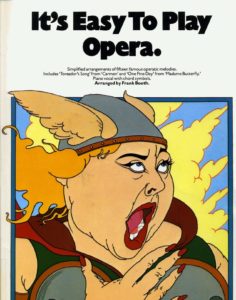
Pietro Mascagni (1863-1945) was born in Livorno, Italy, and attended the Milan Conservatory. However, he was dismissed in 1884, aged 21, for his lack of application. He then endured six years of poverty and obscurity touring as a conductor, then teaching and conducting in Cerignola, Puglia.
Here, in 1889, he heard of a competition sponsored by the music publisher Edoardo Sonzogno offering a prize for the best one-act opera written by a young Italian composer who had not yet had an opera performed. The competition had been announced the year before, and 26-year-old Mascagni heard about it only two months before the closing date.
For his story he chose Cavalleria Rusticana (‘Rustic Chivalry’), a passionate love tragedy that takes place on Easter morning by the Sicilian writer Giovanni Verga, which the author had already adapted into a play Mascagni had admired in Milan.
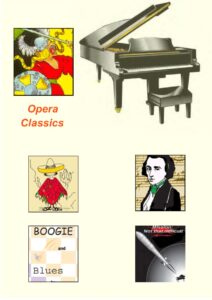
He asked his childhood friend Giovanni Targioni-Tozzetti, a poet and professor of literature, to provide a libretto. Time was of the essence so Targioni-Tozzetti and his colleague Guido Menasci immediately set to work, sending the lines to Mascagni as they went along, sometimes only a fragment on a postcard.
Mascagni recalled: ‘I received the verses a few at a time but I already had all the situation clear in my mind: I identified with the drama to such an extent that I felt it within myself in terms of music.’
It took the full two months for Pietro Mascagni to compose the score, and when the time came for him to submit it, his courage deserted him. Fearing failure, he put the music in a drawer, where it might have remained had his wife not sent it off.
It arrived at the last day for acceptance of entries. In all, 73 operas were submitted, and Cavalleria Rusticana was unanimously voted the winner by the five judges.
It opened on May 17, 1890, at the Teatro Costanzi in Rome, starring the renowned Italian tenor Roberto Stagno and soprano Gemma Bellincioni, one of the best known opera singers of the time. The house was half empty but the audience included the country’s most authoritative music critics and the Queen consort of Italy, Queen Margherita.
The work was a success from its opening notes. After Stagno’s rendition of one of the songs, the Siciliana, the audience leaped to their feet with thunderous applause. Several numbers had to be encored. Mascagni took 40 curtain calls.
The subsequent run was sold out, and many more productions followed. It opened in London at the Shaftesbury Theatre in October 1891 and had its Covent Garden premiere on 16 May 1892.
American producers fought, sometimes in the courts, to be the first to present the opera. It was premiered in Philadelphia at the Grand Opera House on September 9, 1891. In New York, two rival productions opened on the same day, October 1, 1891.
At the age of 27, the struggling composer became wealthy and famous overnight. Medals were struck in Mascagni’s honor; Livorno welcomed him home as a hero; the King of Italy bestowed on him the Order of the Crown of Italy – an honor even Verdi wasn’t given until middle age.
Mascagni wrote and produced 15 other operas but none came close to the spectacular success of Cavalleria Rusticana. At the end of his life he said: ‘It is a pity I wrote Cavalleria first for I was crowned before I became king.’
Pietro Mascagni: Cavalleria rusticana – Intermezzo
Intermezzo from Cavalleria rusticana
Mascagni had already had an operetta produced in Cremona and had been conducting opera for several seasons when he decided to enter a competition in 1888 for new one-act operas.
Please, subscribe to our Library.
If you are already a subscriber, please, check our NEW SCORES’ page every month for new sheet music. THANK YOU!
He had seen Giovanni Verga’s hit play Cavalleria rusticana (Country Chivalry) shortly after it had opened in 1884, and Mascagni now commissioned a libretto based on the play. This was completed in December 1888 and six months later Mascagni had his opera finished. One of 73 entries, it won the competition, and was first staged in Rome in May 1890.
This was perhaps the first opera to draw on the verismo literary movement, of which Verga was a major figure. Verismo opera placed an emphasis on true-to-life, regional characteristics and a quick narrative pace. Cavalleria rusticana takes place on Easter Sunday in a Sicilian village. Turiddu, a young peasant, has seduced and then abandoned Santuzza in favor of Lola, who is married to Alfio. Santuzza pleads with Turiddu to return to her; when he spurns her, she tells Alfio about Turiddu and Lola.
At this point the village square is empty, and the drama moves to the orchestra with this Intermezzo, played with the curtain up. The tune is based on a hymn heard earlier from within the village church, and its setting here suggests the both the peace of country living and the intense individual feelings of the principals.
It closes the Easter ceremony and foreshadows the coming tragedy. Turiddu and Lola come out of the church and enter his mother’s inn, where Alfio challenges him. After asking his mother to take care of Santuzza, Turiddu goes off-stage to meet Alfio, who kills him.
Best Sheet Music download from our Library.
Browse in the Library:
| Artist or Composer / Score name | Cover | List of Contents |
|---|---|---|
| Strauss – An Der Schönen Blauen Donau The Blue Danube (Intermediate Piano Solo) (Musescore File).mscz | ||
| Strauss Also sprach Zarathustra op. 30 (arr. for 2 pianos) |
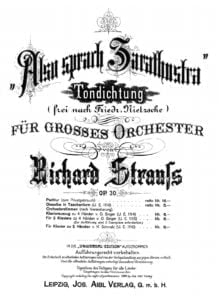 |
|
| Strauss Richard 4 Lieder Op. 27 No. 4 Morgen Musescore File.mscz | ||
| Strauss, Johann Ii An Der Schönen Blauen Donau, Op.314 Jrummel Easy Piano Solo |
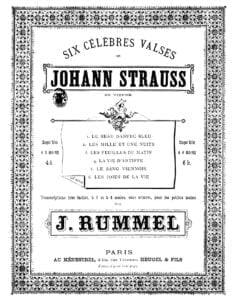 |
|
| Strauss, Johann Ii Waatzes For Piano Op. 314 (Complete) |
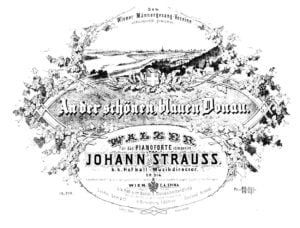 |
|
| Strauss, Johann II Die Fledermaus Suite for piano solo arr. |
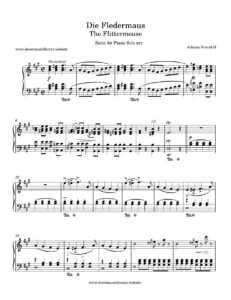 |
|
| Strauss, Johann Ii Die Fledermaus Suite For Piano Solo Arr. Musescore File.mscx | ||
| Strauss, Johann Jr. – The Blue Danube Waltz (Easy Piano Solo) |
 |
|
| Strauss, Richard Also Sprach Zarathustra, Op 30 Einleitung, Oder Sonnenaufgang (Solo Piano Arr) |
 |
|
| Stravinski, Igor – Poetica Musical Book (Español – Spanish) |
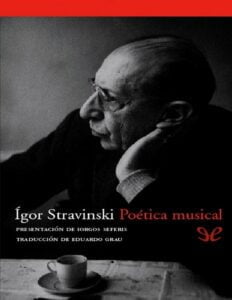 |
|
| Stravinsky Ragtime (Piano Solo, Transcribed By The Composer) |
 |
|
| Stravinsky The Firebird Suite Piano Transcription |
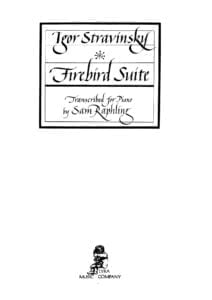 |
|
| Stravinsky Three Movements From Petrushka (piano solo arr.) |
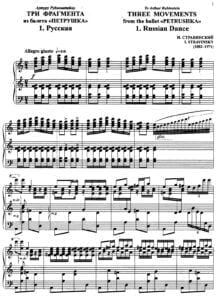 |
|
| Stravinsky – Octet for Wind Instruments |
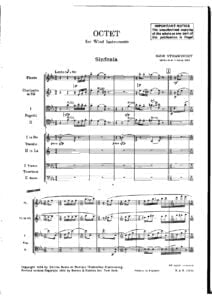 |
|
| Stravinsky – Ragtime (Piano Solo) |
 |
|
| Stravinsky – The Rite of Spring Le Sacre du printemps (4 hands, piano à 4 mains) | Stravinsky – The Rite of Spring Le Sacre du printemps (4 hands, piano à 4 mains) | |
| Stravinsky – The Rite Of Spring – piano 2 hands – arr. by Raphling |
 |
|
| Stravinsky 3 Easy pieces for piano 4 hands |
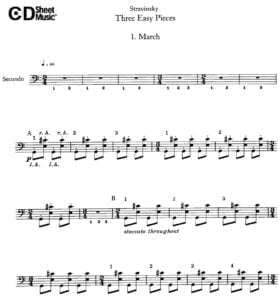 |
|
| Stravinsky 4 Etudes Op.7 |
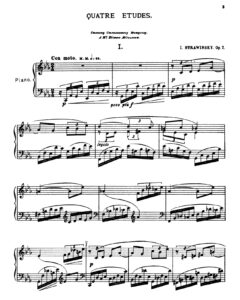 |
|
| Stravinsky And His World by Tamara Levitz (Book) |
 |
|
| Stravinsky Sonata F Sharp Minor |
 |
|
| Stravinsky Symphony of Psalms (arr. piano solo) | ||
| Stravinsky Tango |
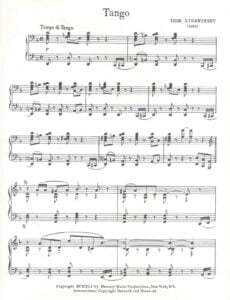 |
|
| Stravinsky The Firebird Piano Transcription |
 |
Stravinsky: The Firebird |
| Stravinsky, Igor 5 Easy Pieces [Piano 4 Hands] |
 |
|
| Stravinsky, Igor – The Rite of Spring Le Sacre du Printemps (piano solo) |
 |
|
| Straylight Run – Existentialism On Prom Night | ||
| Streabbog (Jean Louis Gobbaerts) – 12 Easy and Melodious Studies, Op 64 | ||
| Streabbog (Jean Louis Gobbaerts) – 12 Very Easy and Melodious Studies, op 63 | ||
| Streabbog Book 1 Opus 63 Twelve Very Easy And Melodious Studies |
 |
|
| Streabbog Book 2 Opus 64 12 Melodious Pieces For Piano |
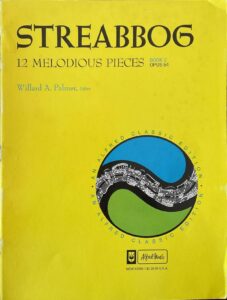 |
|
| Stride & Swing Piano The Complete Guide by John Valerio |
 |
Stride & Swing Piano Stride & Swing Piano – The Complete Guide |
| Stuart K. Hine How Great Thou Art Arr Joel Raney 6 Concert Hymns Expressions For Solo Piano |
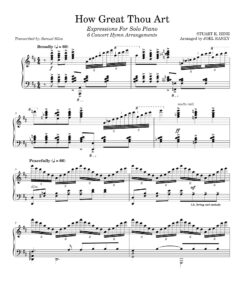 |
|
| Studio Ghibli Guitar Arrangements Best Album (Joe Hisaishi & Hayao Miyazaki) with Tablature |
 |
|
| Studio Ghibli Piano Suite |
 |
|
| Styx – Babe | ||
| Styx – Come Sail Away |
 |
|
| Succar Ya Banat (Caramel OST) Rasha Rizk | ||
| Suis-moi – Le Petit Prince OST (Hans Zimmer – Camille) | ||
| Sum 41 – Pieces | ||
| Summer of ’42 (Michel Legrand) | ||
| Summer of ’42 The Summer Knows Michel Legrand Piano & Voice |
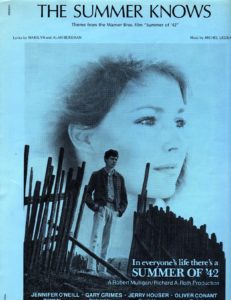 |
Summer of ’42 The Summer Knows Michel Legrand Piano & Voice |
| SUMMER OF’42 THE SUMMER KNOWS Piano (another version) | THE SUMMER KNOWS -SUMMER OF’42 | |
| Summertime – Piano arrangement Pianos Of Cha’n |
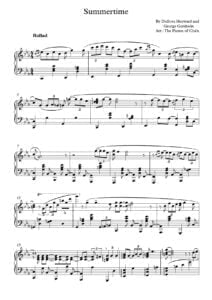 |
|
| Summertime G. Gershwin |
 |
|
| Sun Ra sheet music Collection | 1 Sun Ra index sheet music | |
| Sunday Music (100 Arrangements For Piano Solo) E. Pauer |
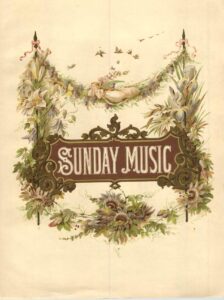 |
Sunday Music (100 Arrangements For Piano Solo) E. Pauer |
| Sunrise on Pontchartrain (The Curious Case of Benjamin Button OST) Alexandre Desplat | Sunrise on Pontchartrain | |
| Super Junior Pajama Party |
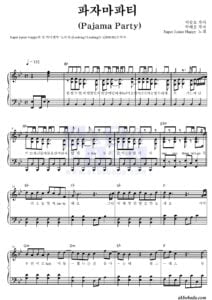 |
|
| Super Mario 64 – dire,dire docks |
 |
|
| Super Mario 64 by Koji Kondo – Piano |
 |
|
| Super Mario Bros – Main Theme | Super-Mario-Bros-Main-Theme | |
| Super Mario Bros – Main Theme Overworld |
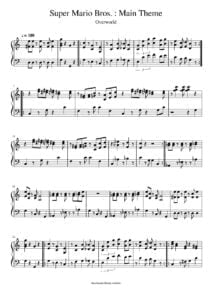 |
|
| Super Mario Bros – Main Theme Overworld (Musescore File).mscz | ||
| Super Mario Bros – Mario Main Theme – Koji Kondo | ||
| Super Mario Bros 2 Overworld Theme by Koji Kondo Piano Solo |
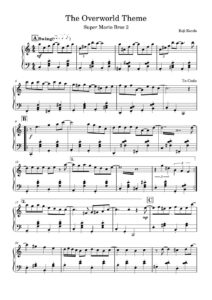 |
|
| Super Mario Bros 2 Complete Piano Arrangement |
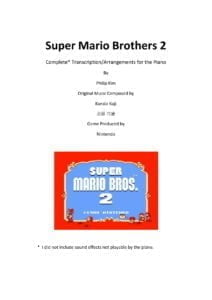 |
|
| Super Mario Bros Overworld Main Theme sheet music |
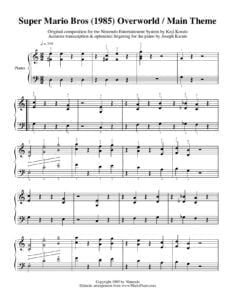 |
|
| Super Mario Bros Songbook |
 |
|
| Super Mario Bros. 3 Don’t stand on the Donuts – Piano Sheet Music |
 |
|
| Super Mario Galaxy – Aquatic Race |
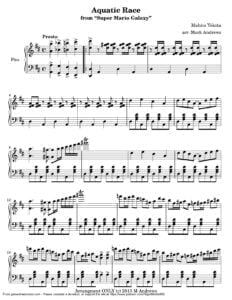 |
|
| Super Mario Galaxy – Attack! Koopas Fleet |
 |
|
| Super Mario Galaxy – Catastrophe |
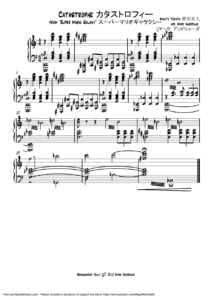 |
|
| Super Mario Galaxy – File Select |
 |
|
| Super Mario Galaxy – King Koopa’s Entrance |
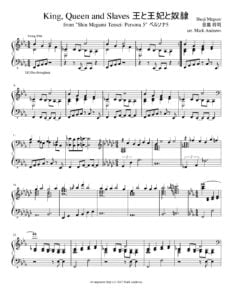 |
|
| Super Mario Galaxy – Kinopio’s Expedition |
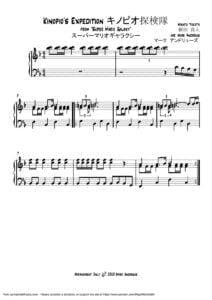 |
|
| Super Mario Galaxy – Overture |
 |
|
| Super Mario Galaxy – Peachs Castle is Stolen |
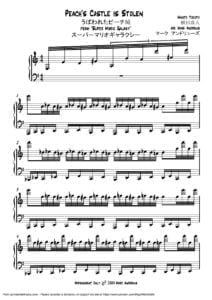 |
|
| Super Mario Galaxy – Rosetta’s Comet Observatory I |
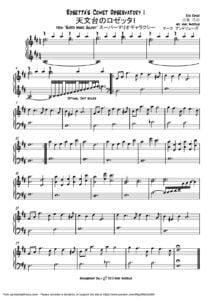 |
|
| Super Mario Galaxy – Starbit Festival |
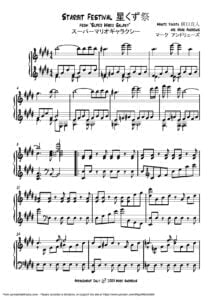 |
|
| Super Mario Galaxy Complete Sheet Music |
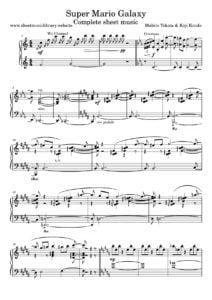 |
|
| Super Mario Galaxy Sheet Music (Musescore File).mscz | ||
| Super Mario Land – Birabuto Kingdom by Hirokazu Tamaka |
 |
|
| Super Mario World 2 Yoshis Island – Athletic |
 |
|
| Super Sight Reading Secrets by Howard Richman (Book) for keyboard players |
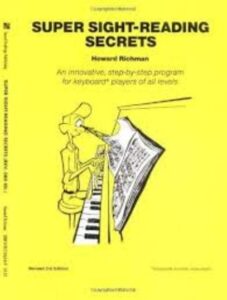 |
|
| Super Solos for Acoustic Guitar Solos (by Johnny Norris) Fingerpicking with Tablature |
 |
Super Solos for Acoustic Guitar Solos (by Johnny Norris) Fingerpicking with Tablature |
| Super Top Ten Volume (Guitar) |
 |
Super Top Ten Volume (Guitar) |
| Supercell – Sayonara Memories |
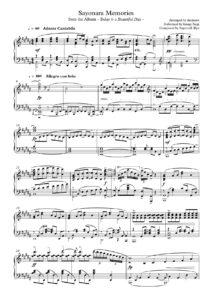 |
|
| Superhero Themes 14 of Your Favorite Heroes and She-Roes |
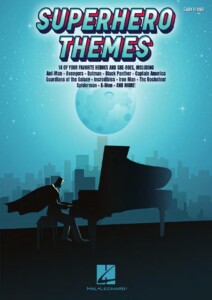 |
Superhero Themes 14 of Your Favorite Heroes and She-Roes |
| Superman Theme For Piano |
 |
|
| Supertramp – Breakfast In America |
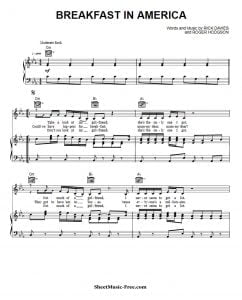 |
Supertramp Breakfast In America Book |
| Supertramp – Logical Song | ||
| Supertramp Anthology Songbook |
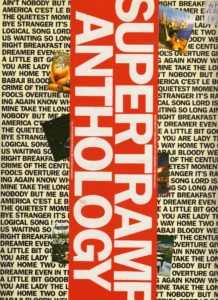 |
Supertramp Anthology Songbook |
| Supertramp Breakfast In America SongBook |
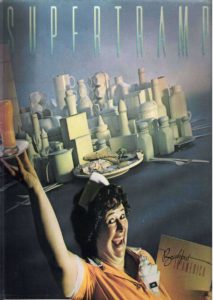 |
Supertramp Breakfast In America Book |
| Supertramp Crisis What Crisis SongBook |
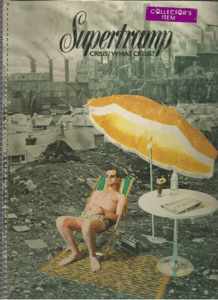 |
 |
| Supertramp Even In The Quietest Moments Songbook |
 |
Supertramp Even In The Quietest Moments |
| Supertramp Famous Last Words SongBook |
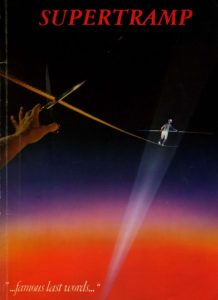 |
Supertramp Famous Last Words Book |
| Supertramp Paris SongBook |
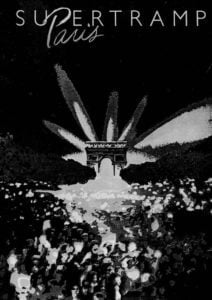 |
Supertramp Paris Book |
| Surface Pressure – Encanto (sheet music).mscz | ||
| Suzanne Ciani Adagio from the album Pianissimo | Suzanne-Ciani-Adagio 1st page | |
| Suzanne Ciani Dream Songs for piano |
 |
Suzanne Ciani Dream Songs piano |
| Suzanne Ciani New Age Piano |
 |
Suzanne Ciani New Age Piano |
| Suzanne Vega Songbook |
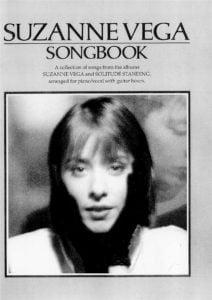 |
Suzanne Vega Songbook |
| SUZUKI – Guitar School Revised Edition (Vol 1) |
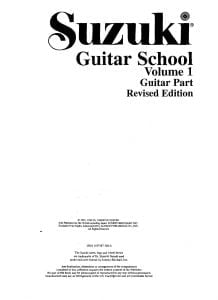 |
SUZUKI – Guitar School Revised Edition (Vol 1) |
| Suzuki Guitar (Complete Vol. 1 To 9) |
 |
SUZUKI GUITAR Vol 1-9 |
| Suzuki Piano School – Vol 07 – Mozart Handel and Paderevski |
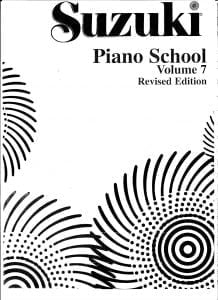 |
|
| Suzuki Piano School Volumes 1 to 7 (240 p.) |
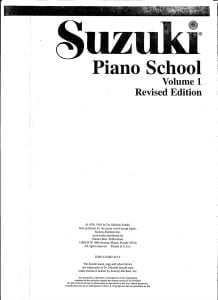 |
Suzuki 1-7 – Piano School (7 books) |
| Suzuki Tsunekichi – Omohi De – Irish Folk Song Opening Theme To The Netflix Series Midnight Diner Tokyo Stories) (Musescore File).mscz | ||
| Suzuki Tsunekichi – Omohi de – Irish Folk Song Opening theme to the Netflix series Midnight Diner Tokyo Stories) Guitar | Suzuki Tsunekichi – Omohi de – Irish Folk Song Opening theme to the Netflix series Midnight Diner Tokyo Stories) Guitar | |
| Sveinn Eythorsson – Easy Guitar Songs |
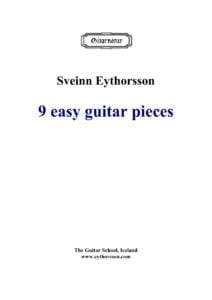 |
|
| Swan Lake Theme – Tchaikovsky (Musescore File).mscz | ||
| Swanee River Boogie Woogie – Albert Ammons (Musescore File).mscz | ||
| Sweet Hour Of Prayer – Piano Solo arr. of 13 Sacred Songs by Marvin Goldstein |
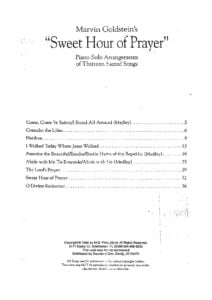 |
|
| Swing And Early Progressive Piano Styles Jazz Improvisation 3 by John Mehegam |
 |
Swing And Early Progressive Piano Styles Jazz Improvisation 3 by John Mehegam |
| Swing Low Sweet Charriot (Musescore File).mscz | ||
| Sydney Bechet Si Tu Vois Ma Mere Lead sheet music GUITAR CHORDS |
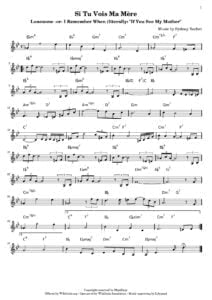 |
|
| Symphony No 40 In Gm K550 (Musescore File).mscz | ||
| Symphony No 9 In E Minor (From The New World) For Piano – 1st Movement (Adagio – Allegro Molto) (Musescore File).mscz | ||
| Symphony No 9 In E Minor (From The New World) For Piano – 2nd Movement (Largo) (Musescore File).mscz | ||
| Symphony No 9 In E Minor 4th Mov. (From The New World) A. Dvorak (Musescore File).mscz | ||
| Symphony No. 2 Third Mov. Advanced Piano Arr. (Musescore File).mscz | ||
| Symphony No. 5 – Adagietto Gustav Mahler (Musescore File).mscz | ||
| System Of A Down – Lonely Day | ||
| T – Pain – Buy You A Drink | ||
| Table for Two – Nocturnal Animals OST (Abel Korzeniowski) | ||
| Takashi Yoshimatsu – Piano Folio … To a disappeared pleiad | ||
| Take Five (Musescore File).mscz | ||
| Take Five by Paul Desmond Jazz Play Along |
 |
|
| Take Five Guitar by Chet Atkins.mscz | ||
| Take Five Jazz Standard by Paul Desmond arranged for Guitar by Chet Atkins with Tablature TABs | Take Five Jazz Standard by Paul Desmond arranged for Guitar by Chet Atkins with Tablature |
